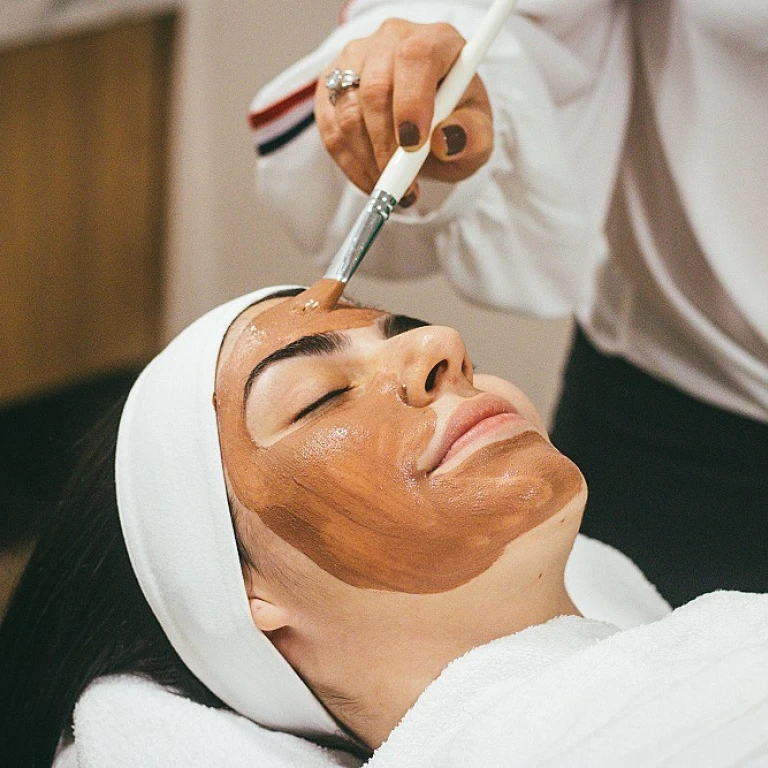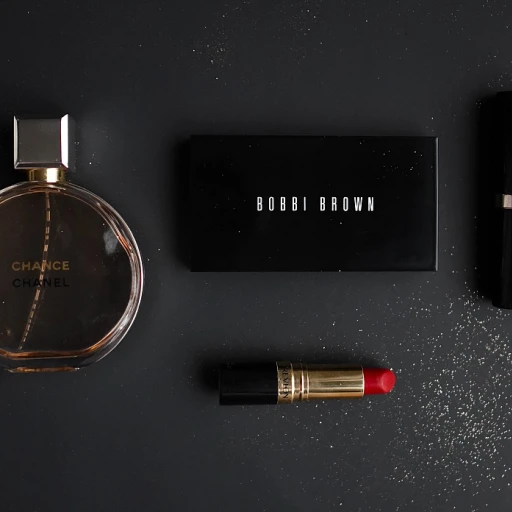The Emergence of Sustainable Luxury
The Rise of Eco-Luxury in Beauty
The intersection of opulence and eco-consciousness has become the beacon of innovation in the luxury cosmetic industry. As more consumers become environmentally aware, the demand for sustainable luxury has skyrocketed, becoming as much a staple of refinement as the products themselves. Statistics are speaking volumes: according to a recent Nielsen report, 73% of millennials are willing to spend more on a product if it comes from a sustainable brand. This significant figure underscores the emergence of 'Green Glamour'—a term symbolizing the harmonious blend of high-end allure with environmental stewardship.
Envisioning a Sustainable Future with Elegant Packaging
In response to the paradigm shift, visionary brands are reimagining packaging to be both luxurious and environmentally friendly. This challenge is quickly transforming the industry's narrative, creating a luxe landscape where the aesthetics of packaging cleverly integrate with ecological principles. Luxurious yet biodegradable materials are now at the forefront, evidenced by the proliferation of bamboo, recycled glass, and compostable plastics in the market. A compelling example of this shift is seen in the trend towards refillable components—a nod to reducing waste without compromising the indulgent experience that consumers of luxury products expect.
Decoding Consumer Preferences for Sustainable Practices
It is indisputable—the tide has turned with a new wave of consumer preferences leaning towards sustainability in luxury cosmetics. Insights from consumer surveys illuminate this trend, with 60% of consumers willing to change their shopping habits to reduce environmental impact, according to a report by IBM and the National Retail Federation. This data illustrates a pivotal moment for the luxury cosmetic industry: the opportunity to integrate green initiatives as a core component of brand identity and, in doing so, reinvent the essence of luxury to reflect societal values and responsible innovation.
Case Studies: Luxury Brands Leading the Way
Leading Brands Setting Sustainability Trends
As we delve into the nuances of eco-friendly luxury cosmetics, it's impossible to ignore the wave of change led by eminent brands. Sustainable packaging has become a pivotal element in the beauty industry, transforming not just products but the overall brand image. A report by NielsenIQ highlights that 73% of consumers are willing to change their consumption habits to reduce environmental impact. This statistic drives luxury brands to innovate continuously.
For instance, a flagship brand has reimagined its packaging by integrating materials such as bamboo and recycled plastics, ensuring that luxury feels both lavish and conscientious. Their recent campaign quotes, "True luxury comes with no regrets," showcasing their commitment to sustainability while maintaining their opulent vibe.
Innovative Packaging Solutions in Premium Segments
- Biodegradable containers that decompose without leaving harmful residues.
- Refillable systems that encourage consumers to reuse elegant casings.
- Recycled materials sourced from ocean plastics, emphasizing the brand's ocean conservation efforts.
In the competitive world of luxury cosmetics, these innovative solutions don't just resonate with environmentally conscious consumers but also set a benchmark for industry standards.
The Golden Standard in Eco-Luxury
When discussing the intersection of luxury, science, and sustainability, it's worth mentioning the allure of gold-infused cosmetics—a niche that marries opulence with cutting-edge technology. Finding links between gold particles and skin rejuvenation, one particular high-end skincare brand has pioneered the use of nano-gold as a core ingredient, wrapped in equally innovative and sustainable packaging.
This blend of advanced science and eco-conscious design is a testament to the brand's philosophy that luxury and responsibility are not mutually exclusive. By incorporating such high-value elements into their products, they meet the exacting standards of luxury consumers, while also appealing to their growing ecological sensitivity.
The Design Dilemma: Balancing Aesthetics and Ecology
Reconciling Eco-Friendly Practices with Luxurious Appeal
The advent of sustainable packaging in the luxury cosmetics industry has presented a unique challenge for designers: how to maintain the allure and elegance that consumers expect from high-end products while incorporating eco-friendly materials and processes. According to a recent study, 73% of global consumers are willing to change their consumption habits to reduce environmental impact, showcasing the vital need for luxury brands to adapt (Nielsen, 2020). This statistic highlights the growing consumer demand for sustainability, which luxury cosmetic brands can't afford to ignore.
Integrated Aesthetics: When Sustainability Enhances Luxury
Some luxury brands have successfully navigated this balance, proving that sustainable packaging can indeed complement and even enhance a product's premium feel. For instance, packaging made from recycled glass or bioplastics can still exude sophistication with minimalist design and clean lines. By employing high-quality materials and meticulous attention to detail, brands create a sense of exclusivity while remaining environmentally conscious—setting a new standard for green glamour in the industry.
Consumer Response to Sustainable Packaging Innovations
The shift towards eco-friendly packaging has reported positive consumer feedback, with many expressing a heightened sense of brand loyalty towards companies that prioritize the environment. A study indicated that eco-conscious packaging could influence over 45% of consumers' purchasing decisions (Trivium Packaging, 2021). This demonstrates the importance of achieving a cohesion between aesthetics and sustainability, as consumers increasingly seek products that align with their personal values without compromising on quality or design.
Material Matters: Advanced Solutions in Packaging
Advancements in material science are changing the game for luxury cosmetic packaging. Innovations such as biodegradable polymers and plant-based inks are allowing brands to design packaging that is as sumptuous to the touch as it is kind to the planet. For instance, using soy or vegetable-based inks for packaging printing not only reduces harmful VOC emissions but also provides a rich, vivid color payoff that is critical for brand impact. As these materials evolve, the gap between luxury and sustainability narrows, opening up novel opportunities for brands to delight eco-savvy consumers.
Consumer Impact: The Shift in Brand Loyalty
User Attitudes and the Growth of Eco-Consciousness
In the realm of luxury cosmetics, the consumer impact cannot be overstated. A recent survey by Nielsen showed that 73% of millennials are willing to spend more on a product that comes from a sustainable brand. The shift in brand loyalty towards companies that demonstrate a commitment to sustainable packaging is a telling sign of the times. Customers are no longer just seeking opulence in their products; they are looking for responsibility and eco-friendliness, attributes that are becoming synonymous with modern luxury.
Brand Loyalty and Sustainable Choices
Modern consumers are savvier and more informed than ever before. Statistics reveal that brands that have incorporated sustainable practices and eco-friendly packaging into their business models have seen a competitive advantage. For instance, a study by Cone Communications found that 87% of consumers would purchase a product because a company advocated for an issue they cared about. This trend provides a compelling argument for luxury brands to consider sustainability not as an afterthought but as a core component of their market positioning.
Case Example: How Eco-Packaging Influences Purchasing Decisions
- 58% of consumers are more likely to try new products from a brand if they are packaged sustainably (Source: Dotcom Distribution)
- Products reflecting a commitment to sustainability can increase market share by up to 5.6 times over those that don't (Source: Unilever)
These statistics highlight that sustainable packaging is not just a fleeting trend but a potential pivot point for brand loyalty and market dominance within the luxury cosmetics sector.
Engagement Through Transparency and Sustainability Commitments
Luxury cosmetics brands are now tasked with the responsibility of articulating their sustainability narratives clearly and engagingly. Fans of high-end makeup and skincare products expect brands to communicate the specifics of their sustainable efforts and to do so with passion and authenticity. Nielsen reports that 66% of consumers are willing to spend more on a product from a brand that shows transparency in its manufacturing practices. Luxury brands that offer a clear, verifiable account of their efforts in sustainable packaging tap into the growing consumer demand for ethical luxury, forming an emotional connection with their audience.
Forward-Thinking Strategies for Luxury Brands
Revolutionizing the Luxury Landscape with Sustainable Innovations
In an industry synonymous with exclusivity and opulence, the luxury cosmetics realm is undergoing a seismic shift towards environmental stewardship. Climate-conscious consumers now expect more than just high-quality products; they demand ethically sourced ingredients and eco-friendly packaging. Industry statistics reveal a surge in customer loyalty for brands that advocate for sustainability, with over 73% of millennials willing to spend more on a product if it comes from a sustainable brand (Nielsen). This mindset has catalyzed the luxury sector to embed sustainability into their DNA, marking a pivotal moment in consumer goods history.
Strategic Integration of E-Commerce and Sustainability
As the digital marketplace expands, luxury brands have a unique opportunity to merge e-commerce with sustainable practices. Online shopping platforms provide detailed product lifecycle information, reinforcing transparency and reinforcing consumer trust. An impressive 88% of consumers want brands to help them be more environmentally friendly (Forbes). Therefore, providing carbon-neutral shipping options and integrating green logistics are just a couple of examples where luxury brands can enhance their ecological footprint while maintaining a robust online presence.
Collaborative Efforts for a Greener Future
The path towards sustainable luxury is not to be walked alone. Collaboration between industry giants, innovative startups, and eco-conscious consumers is crucial. Luxury brands must engage in partnerships that promote sustainability, such as sourcing materials from suppliers with verifiable green credentials and participating in environmental initiatives. The Luxury Institute states that cross-industry partnerships have the potential to reduce carbon emissions by up to 50% on certain supply chain segments, underscoring the significant impact of collaborative endeavors.
Empowering Consumers with Knowledge and Choice
Education is a powerful tool in encouraging eco-friendly consumption. Luxury brands have the responsibility to educate their clientele about the benefits of sustainable products and practices. Whether by informative campaigns, in-store workshops, or through brand storytelling, powerful narratives can shape consumer mindsets and ultimately, purchase behaviors. According to the Harvard Business Review, brands that openly communicate their sustainability journey can expect a 4-6% increase in shareholder value, making transparency not just ethically right but also financially smart.
Investing in Green Technology and Innovation
To remain at the forefront of luxury cosmetics, brands must invest in green technology and innovative sustainable materials. The development of biodegradable packaging and waterless beauty products not only addresses environmental concerns but also resonates with the modern luxury consumer’s aspirations for innovation and social responsibility. The Ellen MacArthur Foundation highlights that embracing a circular economy could unlock a $4.5 trillion economic opportunity by 2030, making the case for sustainability as a driver for future profitability in luxury markets.


-large-teaser.webp)